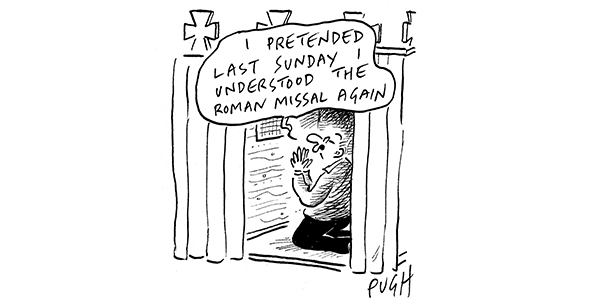The President of the Conference of Religious in England and Wales has criticised the decision by the bishops to retain the current translation of the Roman Missal.
Fr Paul Smyth CMF said in a letter to The Tablet that there is “disappointment” at the announcement by the bishops of England and Wales that the motu proprio on liturgical translations, Magnum Principium, cannot be applied retroactively.
“We find that this announcement fails to take into account the general malaise among practising Catholics who feel that the current translation is incomprehensible and fails to connect with their lived experience,” he wrote.
Speaking to The Tablet, Fr Smyth added there had been widespread hope, after the motu proprio was issued, that the bishops now had the freedom to authorise the 1998 translation of the liturgy that had been approved by 11 conferences of English-speaking bishops, but was rejected by Rome for not being sufficiently faithful to the Latin original.
“As has been well documented since the new translation came in, in 2011, people were disappointed with it then,” he said.
“They kind of accepted it but I suppose there was a hope that something would happen to give it a chance to be replaced by a better version. After what was in the press about the Pope and the motu proprio it reawakened that hope. Then the decision of the bishops extinguished that hope.”
The liturgy is intended to engage people and help them enter into the mysteries of the Church, but the present translation creates more of an obstacle, he said. “The language can come across as archaic. The structures are not what we are familiar with.”
Retired Bishop of Portsmouth, Crispian Hollis, said in a separate letter to The Tablet that he deeply regrets not having taken “more seriously” discussions in the bishops’ conference about the translations.
He also told The Tablet: “There was such a volume of material, there were mountains of stuff. It was just such a daunting exercise that I think we took the line of least resistance. Our experience had been that when suggestions had been made, they were not really taken terribly seriously by those who were in charge of the process.
“The consequences are that the version of the translation which we now have and which we are beginning to get used to, is in so many ways, quite inadequate,” he said.
“Most of us find it quite difficult to get our tongues, let alone our heads, around some of the syntax and some of the punctuation.”



 Loading ...
Loading ...